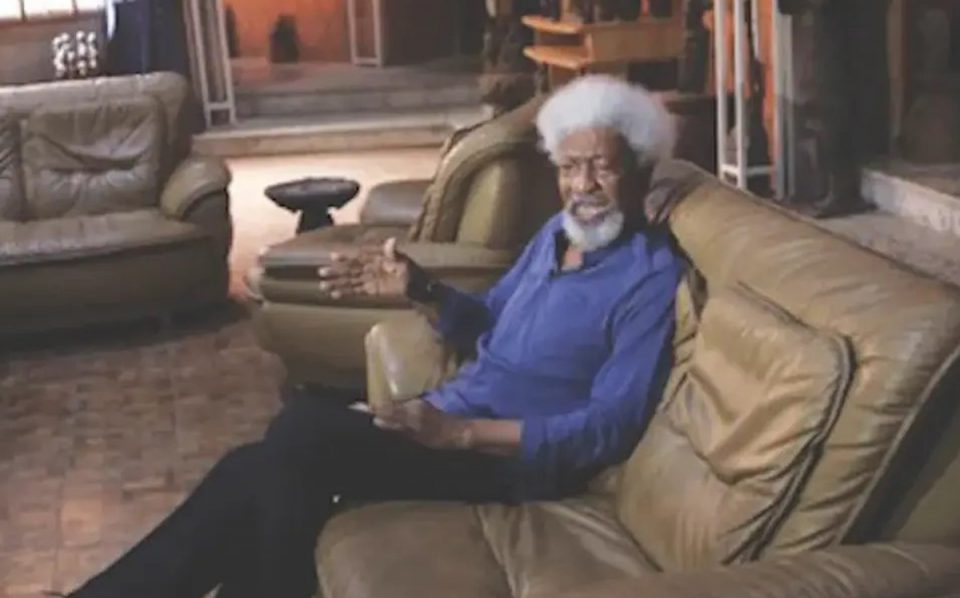Beginning from his childhood to the days of his detention and the daily trial of being a socially committed writer, the Nobel Laureate, Professor Wole Soyinka, has never been insulated from socio-political realities, says Yinka Olatunbosun
“You cannot sit down and write a poem when next door someone is being raped or violated in some way,” Nobel laureate Professor Wole Soyinka was famously quoted to have said. “You’d put down that pen. You can write it later. You know you are compelled to take action at that point or you cease to be a human being.”
The preceding statement almost sums up the life of this white-haired and bearded literary giant, who celebrated his 88th birthday on Wednesday, July 13. As a storyteller, who is a custodian of history, he believes has a duty to guard it. Hence, he found courage to do this beyond his writings. The statement also backdropped his tirade against the rising spate of insecurity nationwide, especially with the intrusion into a part of his secluded Ijegba home in Abeokuta by some herdsmen.
This was during an interaction with journalists at Lagos’s Freedom Park. It was on that occasion that he laid down his precondition for joining any more street protests against bad governance in Nigeria as follows: A fully air-conditioned wheelchair with protective gear.
For the discerning ones that morning, his response was perhaps a tactful way of saying, “I have done my part.” As a senior citizen, his intervention series has been a metaphor for the Yoruba proverb that states thus: “Agba kii wa loja, ki ori omo titun wo”, which loosely means that “an elder does not stay aloof where things are not in order.”
At 88, Soyinka is no longer an angry Nigerian youth. His days are now filled with reminisces on his struggles for justice which he had repeatedly mentioned as a precondition for humanity. ‘Elewon’ is part of his lexicon-a Yoruba word used for a political detainee. An unapologetic palm wine connoisseur, Soyinka would recount his truth about history with friends and associates, sometimes in a relaxed atmosphere at his tree house.
His stance on humanity has not changed. Flashback to 1969 after his release from the prison, Soyinka told a journalist: “Of course I got myself involved in what was happening. I don’t know whether you’d call it politics or not. I don’t consider war as politics. I believe war is a human problem. But I am not a politician.”
His 22-month detention didn’t break him; rather it reinforced his fight against human right violation. “I think we writers, sometimes, are closet activists,” Soyinka once told a Turkish writer and activist, Elif Shafak on Aljazeera. He was a man who went on trial and detention for allegedly holding a radio station at gunpoint in protest against electoral fraud. The luxury of being non-political has eluded the conscientious writer and global citizen; giving way to a burdensome role in the course of history.
His social commentaries are poignant; reflecting his sheer disgust at the cycle of impunity associated with violation of fundamental rights. Right from his childhood, he had watched his mother, Grace Eniola Soyinka who is the granddaughter of Rev Canon. J.J Ransome-Kuti joined the movement of women rights activism led by her aunt-in-law, Mrs. Olufunmilayo Ransome-Kuti.
As a first-hand young observer, he had witnessed the Egba Women’s Revolt against the colonial government, with different types of resistance tactics by women who refused to pay the exorbitant tax. The victory over the tax regime was short-lived and the Alake who had abdicated from the throne returned to power. But that didn’t stop the women from asserting their rights yet again especially in the sphere of political participation.
Remaining resolute against man-made threats to humanity requires resilience. To this end, Soyinka wrote tirelessly on oppressive regimes in his plays such as Kongi’s Harvest, A Dance of the Forests, Madmen and Specialists, Death and the King’s Horseman to name a few.
As a frequent global traveler, he has had his share of racism which he satirises in his popular poetry titled “Telephone Conversation” published in 1963. As a student of history, one must understand that 1963 is a significant year in the civil rights movement. It was the year Martin Luther King delivered the famous “I have a dream” speech. A wave of black consciousness had begun to spread as many African nations gained independence around this period.The currents of racial prejudice still hovers above humanity, giving rise to black rights movements of our time such as “Black Lives Matter.”
In spite of the freedom from colonial rule, Soyinka and other writers of the period were quick to identify that the power of oppression had only exchanged hands at the nation’s Independence Day on October 1, 1960.
His play, A Dance of the Forests, was banned from the celebrations on the claim that its tone is critical of a post-independent government, although it won a national competition. Soyinka accepted the prize money, and still staged the play.
Now as a senior citizen, Soyinka continues to condemn the brutal killings of Nigerians including the unresolved murder cases such as that of Bola Ige, a prominent lawyer and former Minister of Mines and Power and then Minister of Justice.
“Unsolved crimes only lead to a culture of impunity. This puts the entire nation at risk, no matter the privilege of high-level protection. This is a lesson that Nigerian leadership has yet to learn,” he wrote.
His latest prose-a first in 48 years- titled Chronicles of the Happiest People on Earth attracted global media attention. Published in 2021, the book has sparked conversations yet again on the structures that polarise humanity. In his remarks on his hope for Nigeria, he said: “I feel nothing for it because it’s totally diverged from what I knew as Nigeria as a child. I don’t recognise this country.”




